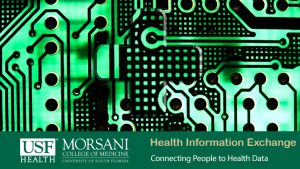Nutrition informatics is the management of the information dietetics professionals need to practice successfully while tailoring recommendations to meet each patient’s specific needs. It also ensures compliance with EHR (electronic health records) regulations.
Nutrition informatics specialists deal with a great deal of information related to health and nutrition. In addition to nutrition data, such as food analysis and nutrient analysis tables, they also work with disease-related nutritional data, food allergies, weight loss recommendations and more. The information these professionals work with is designed to help nutritionists more efficiently provide advice tailored to the needs of individual patients.
Nutrition informatics data is applied in practice in a number of ways, and is used by a variety of healthcare professionals. Critical data in a patient’s EHR, for example, might be compared with nutritional data, disease management data and other information to help doctors, nurses and registered dietitian nutritionists create a specific dietary plan. These plans might help diabetic patients better manage blood sugar levels, or assist obese patients with weight loss. Other healthcare professionals, such as doctors or nurses, can use information from nutrition informatics specialists to create specific diets for patients in a hospital or other clinical setting.
Nutrition Informatics Job Description and Salary
Nutrition informatics specialists are tasked with organizing and managing health information data. They are responsible for maintaining the quality, accuracy and accessibility of data. In addition, they are often responsible for ensuring the security of electronic and paper filing systems. Those who also are practicing nutritionists may use the data they collect to help create dietary plans for patients.
The U.S. Bureau of Labor Statistics forecasts employment growth of 16% for health information technologists and technicians through 2032. The BLS estimates demand for dietitians and nutritionists in general is estimated to grow by 7% through 2032. The agency estimated the median annual pay for dietitians at $69,680 as of May 2023.
For students interested in entering the nutrition informatics field, becoming a registered dietitian nutritionist (RDN) or earning nutrition and dietetic technician registered (NDTR) certification is a critical first step, the foundation upon which the nutrition informatics field is built.
The RDN certification requires a bachelor’s degree in a related field, such as nutrition science, along with completion of an accredited nutrition curriculum. Certification holders also must complete an extensive supervised program of practice and must pass a registration exam. NDTR certification is available to those with an associate’s level degree. A strong background in computers also is helpful.
Colleges and universities across the country offer accredited dietetics education programs at the associate’s, bachelor’s and post-graduate levels. The Accreditation Council for Education in Nutrition and Dietetics offers a listing of available programs by state on its website. Programs for the RDN certification include coordinated programs in dietetics, didactic programs in dietetics, and dietetic internships for those who have completed bachelor level work. Dietetic technician candidates also will find programs geared toward their desired certification. In general, most dieticians and nutritionists hold degrees in majors such as dietetics, foods and nutrition, clinical nutrition or public health nutrition, in addition to certification.
For students who already hold their RDN certifications, master’s programs will help them transition into the nutrition or healthcare informatics field. These programs are generally tailored to registered dietitians or healthcare professionals who want to advance in the more technologically driven side of the field. Programs at the master’s level may vary in course requirements, but they often involve courses that focus on the integration and management of technology with medicine. The resulting degree is generally a master of science in health informatics or a related title.
*National long-term projections may not reflect local and/or short-term economic or job conditions, and do not guarantee actual job growth. Information provided is not intended to represent a complete list of hiring companies or job titles, and program options do not guarantee career or salary outcomes. Students should conduct independent research for specific employment information.




